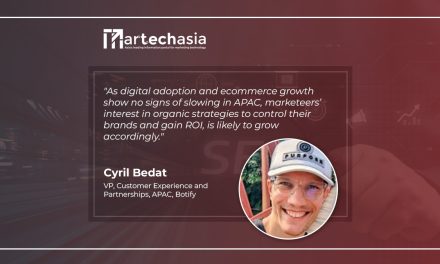This article explains why virtual events are still a trend in Asia and how they can help marketers achieve their sales and marketing goals.
Virtual events have been the alternative to face-to-face seminars and conferences in the past two years. Most people are now returning to offices and larger interactions are becoming normal. How is this going to affect the virtual event market?
While the ongoing pandemic is more manageable with the discovery of the vaccine, new emerging diseases, like the monkeypox virus still keep people hesitant from attending live events. Does this mean that virtual events are here to stay?
More Event Technology Tools
Virtual events are possible because of the proliferation of more event technology tools and solutions. For instance, event marketing platforms enable hosts to promote webinars through digital promotion, such as electronic direct mail (eDM) blasts and social media marketing.
The main objective of embracing technology in events is to promote the best user experience for planners and audiences. Event technology brings people together in the online world to connect and form meaningful business relationships.
Event technology refers to any software or digital tool that makes event planning and execution easier. The event KPIs include boosting brand awareness, forming lasting relationships with audiences, educating, providing solutions, generating leads, and driving sales opportunities.
Here are some event technology examples:
- Registration software
- Virtual event platforms
- Engagement tools
- Streaming services
- AI Chatbots
- Website builders
- Event management software
- Event marketing platforms
- Mobile apps
Boost Lead Conversion Rates
Virtual events are here to stay because they generate high lead conversion rates. With the help of event technology, APAC companies can host events and invite attendees from anywhere in the region.
EventX offers unique hybrid event solutions, building meaningful connections and boosting lead conversion rates by 89%. The event company offers hybrid event solutions, including HD streaming, on-demand streaming, registration landing page, and automated email flow.
According to Sum Wong, the CEO & Co-founder of EventX, “We’re now in an era where businesses have myriad means to engage with other businesses, customers, and staff, but they need the right solution to support their needs. Southeast Asia is experiencing rapid digitalization to varying degrees, and we have seen a growing hunger from businesses in Singapore to adopt technologies that fit the needs of today’s world. Singapore is one of the key markets for EventX’s growth and we’re thrilled to empower our clients with a hybrid event management solution to accelerate their businesses anywhere and anytime without limitations”.
EventX webinar tools provide lead generation and engaging functions, such as one-on-one meetings, event landing pages, breakout rooms, a lead generation engine, chatrooms, polls, and games.
Provide More Attendance Options
Virtual events provide attendees with more options to either attend events in person or virtually. For instance, digital marketing events across the region offer in-person and virtual attendance options to help attendees increase their digital marketing knowledge and create networking and business growth opportunities.
One of the most anticipated virtual events in Asia is the Ecommerce Expo. Ad World will host this 2-day all-in-one advertising event on October 11 and 12, 2022. The event will consist of hyper-focused speeches, live Q&A sessions, and panels to help APAC businesses step to the next level.
Bring APAC Speakers And Attendees Together
Virtual events bring world-renowned speakers and attendees together to discuss important, emerging, and transformative topics. APAC leaders are usually sought to speak about their experiences, expertise, and future plans to help business-to-customer (B2C) and business-to-business (B2B) companies create better business strategies and choose the right business solutions to attain success.
Promote The Best User Experience
Splash released a new research report showing how event companies, event professionals, and attendees are getting ready for the changes and challenges in the events industry. The event marketing technology company explores the evolving trends and reveals the changes in virtual and hybrid events in a survey consisting of 3,133 event attendees and 253 event professionals in the United States.
According to Eric Holmen, Splash Chief Executive Officer, “Our latest report indicates more enthusiasm than ever for taking advantage of business events, as more people plan to attend in-person, virtual, or hybrid events in 2022. If companies want to host more effective, impactful events, they must invest in the right technology to deliver streamlined event marketing and execution.”
Virtual events are seemingly here to stay because the report shows that 92% of companies in the US continued hosting virtual events despite the resumption of in-person events, and 46% are planning to host more virtual events this year.
In the same way, APAC companies need to upgrade their event technology.
Event management and marketing companies continuously develop new features and solutions to make virtual events more convenient, quicker, and meaningful. They incorporate data analytics, artificial intelligence (AI), machine learning, cloud technology, virtual and augmented realities, and more.
There’s no shortage of APAC events because B2C and B2B leaders and attendees can now connect virtually by adopting event technology. Virtual events are here to stay in Asia, revolutionising how businesses educate or raise brand awareness and establish thought leadership, credibility, and reputation.



















